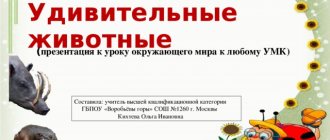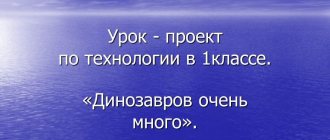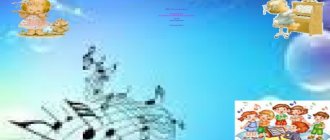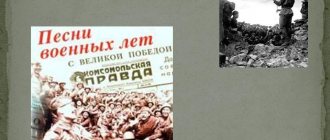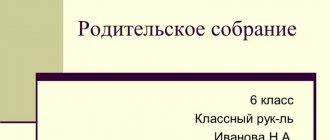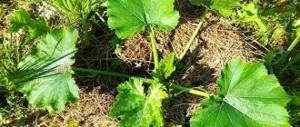so UNT / Educational work / Russian language and literature
Extracurricular activity “Lesson of courage “What do we know about pioneer heroes” 5th grade
07/18/2015 2412 0 Popova Svetlana Nikolaevna Purpose: • to tell children about pioneer heroes, to introduce them to the fates of some of them; • draw children's attention to the difficult trials that befell their relatives during the war; • cultivate respect for the heroic past of our Motherland. Design: • stands with images and descriptions of military awards; • exhibition of books about pioneer heroes, portraits of pioneer heroes; • writing on the board. “No one will ever defeat a country where each new generation preserves and enhances the fighting traditions of previous generations.” Lesson progress 1. The student reads V. Suslov’s poem “Sons of the Regiments.” Crucibles “For battle!” regimental pipes. War thunder rolled over the country. The fighting boys stood in formation on the left flank, on the left flank in the soldier formation. Their overcoats were too big; they couldn’t find boots in the entire regiment. But they still knew how to fight
Don't lag behind, don't retreat and win. The military boys kept in touch, rode into battle on tank armor, fell off their feet in moments of respite, and at one o'clock at night rushed home in a short sleep. Stupid courage lived in their hearts. At twelve years old, strong as adults, They reached the Reichstag in victory - Sons of regiments, Sons of regiments of their country. Where are you now, fighting boys? Sometimes in the spring you listen: The regimental trumpets are calling for the heroes To the right flank, To the right flank Into the soldier formation! 2. The teacher makes an introductory speech. Today we will talk about your peers, for whom the war was not a game, but a cruel and harsh reality. Children of the military, fiery years! You have known the bitterness of loss and loss. The Motherland did everything to protect you from harm, to protect you, to save you. You were transported along the ice route from besieged Leningrad. They carried you out from under the ruins. The last things were shared with you by the fighters leaving for battle. Even behind enemy lines they gave you textbooks: study, there’s no time for war. You shared with the country both the joy of victories and the bitterness of defeats. You have learned the hard science of hatred, it called you to battle! Thousands of children and teenagers accomplished feats in those years. The names of the sons of regiments and partisan formations, small scouts and underground fighters will forever be included in the military chronicle of the country. We will get acquainted with the fates of children who showed courage and perseverance, loyalty to the Motherland and people. War was everywhere: both on the fiery fronts and in the deep rear. The pioneers worked in the fields and factories, collecting metal and medicinal herbs. Pioneer tank columns walked along the battle roads and pioneer squadrons fought in the menacing military skies. 3. The student makes a report about the Book of Honor of the All-Union Pioneer Organization named after. IN AND. Lenin. The Book of Honor was established on April 10, 1954 by a decision of the Komsomol Central Committee. It contains 108 names of pioneers who fearlessly fought against the enemies of the Motherland and committed heroic deeds in the fight against the Nazis, showing the best character traits: courage, heroism, bravery, integrity, vigilance and resourcefulness (the names of individual pioneers are listed). 4. The vocal group sings a song about pioneer heroes. A song about pioneer heroes. A thunderstorm was noisy over the earth, the boys were growing mature in battle... People know: the pioneer heroes remained in service forever! Chorus: They walked through the storm, They walked through the wind, And the wind saved their song, their song: “We have one, only one way - to victory! And there are no other roads!” They march in the parade, aligning an invisible line, The hero guys stand on the right flank in each detachment! In life, my friend and peer, let's go along the path of heroes. We will remember their exploits like a song, and we will finish it ourselves! 5. Students talk about the exploits of Valya Kotik, Leni Golikov, Marat Kazei. 6. The teacher introduces the children to the book “Feat of Living” (Moscow: Young Guard, 1975) about pioneer heroes, reads from it a story about Nadya Bondarenko - “Burned at the stake.” (You can include any other work at the request of the teacher) 7. Conversation about what you read. 8. The Great Patriotic War raised not only the entire adult population of the country to fight the fascists. Teenagers from many families went to the front, helped the partisans, and joined the detachments of the people's avengers. The children of those years grew up early and quickly. You accompanied your fathers and older brothers to the front. You shared with the country both the joy of victories and the bitterness of defeats... (students talk about their grandparents who met the war as children). Story by Sofia Maveeva The Great Patriotic War raised not only the entire adult population of the country to fight the fascists. Teenagers from many families went to the front, helped the partisans, and joined the detachments of the people's avengers. The children of those years grew up early and quickly. You accompanied your fathers and older brothers to the front. You shared with the country both the joy of victories and the bitterness of defeats... The summer sun was shining brightly. In the small, cozy village of Vertyachiy, everyone was busy with their own affairs in the morning, no one expected trouble and grief, when suddenly shots and explosions were heard: the war began. A little girl, Taya, lived in this farm with her parents and grandmother. The father was escorted to the front and the three of us were left. We had to live in a cold cellar, because German officers had moved into the house by that time. There was not enough food, they lived from hand to mouth. I had to eat rotten potatoes with quinoa and nettles. Many died of hunger. And the Nazis came up with entertainment for themselves: in an empty house, they placed a loaf of bread on the windowsill of an open window, teasing starving children. The children, who rushed to the window, were caught halfway by a bullet. When Taya was six years old, her grandmother died, and soon her mother died. Taya was left alone. With her childish, emaciated hands, she independently dug a grave in the frozen ground and buried her mother. After the end of the war, Taya was taken to Stalingrad, to an orphanage. In Stalingrad she went to school and then entered a pedagogical college. At the end of it, the girl was sent to work in the Chita region at the Khadabulak station, where she got married and raised four children. Now she has seven grandchildren, including me - little Taya. We all love our grandmother very much - Arkova Taisiya Andreevna. Story by Alekseev Kirill The war of 1942–1945 is moving further and further away from us. And there are fewer and fewer participants and eyewitnesses of those terrible events. But the past cannot be forgotten, because the peaceful present was won at the cost of millions of lives given in the fight against the invaders. We know the war from books and stories of our grandparents. Our family often talks about those harsh years. When the war began, my grandfather, Vladimir Alexandrovich, was nine years old, and my grandmother, Galina Pavlovna, was eight at that time. Grandfather remembers that terrible day when the Great Patriotic War began. He says: “Everyone was sleeping at night, but I woke up and heard noise and voices. I asked my mother and she said that a war had started. And in the morning there were only women and children left in the village.” And my grandmother remembers with tears the day when men were taken away in cars, and mothers, wives, sisters cried, screamed and ran after the cars. During the war, children studied at school, and after school, students and teachers went to work in the fields. Vladimir Aleksandrovich, at ten years old, worked on a tractor, since all the men were at the front. There were no books or notebooks. They wrote on newspapers with soot or potassium permanganate. Only one textbook was issued per class, and there were forty students per class. We ate poorly. At school they gave us 25 grams of bread, a baked potato, beet jelly and a small crystal of sugar (saccharin). At home they ate boiled nettles, quinoa and oil cake. The grandmother tells how her mother cooked flour with water, threw nettles into it, and the children ate such porridge. There were seven brothers and sisters in their family, and many died of starvation in early childhood. In winter, the whole family had only felt boots. But during that terrible time of war there were also moments of joy. Galina Pavlovna remembers how she danced on the New Year's tree in '42. And during school breaks, playing with their friends, they forgot about the war. Like all children today, in the winter they rode on homemade sleds and skis, and in the summer they played tag and hide-and-seek. On the morning of May 9, 1945, Galina Pavlovna’s mother turned on the radio and learned that the war was over. People were happy all day: adults danced in the square, children played. And in the evening there was a huge fireworks display. Let us be given a reminder in everything that life is full of, in everything that is dear to the heart, about what happened in the world. Then, in order to forget this, generations do not dare. Then, so that we can be happier, And happiness does not lie in oblivion! This story is another “memoir of what happened in the world.” 9. Conclusion. Today you and I have experienced the feeling of touching the Feat accomplished by your peers - boys and girls of the forties. I hope that you will leave today’s Lesson of Courage bright, courageous, brave and kind, as the heroes of the Great Patriotic War, the children of a warrior people, a victorious people, stand before us from the pages of history.
